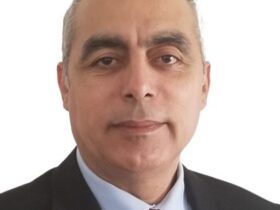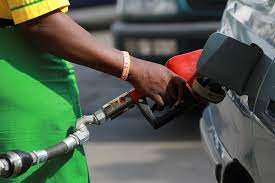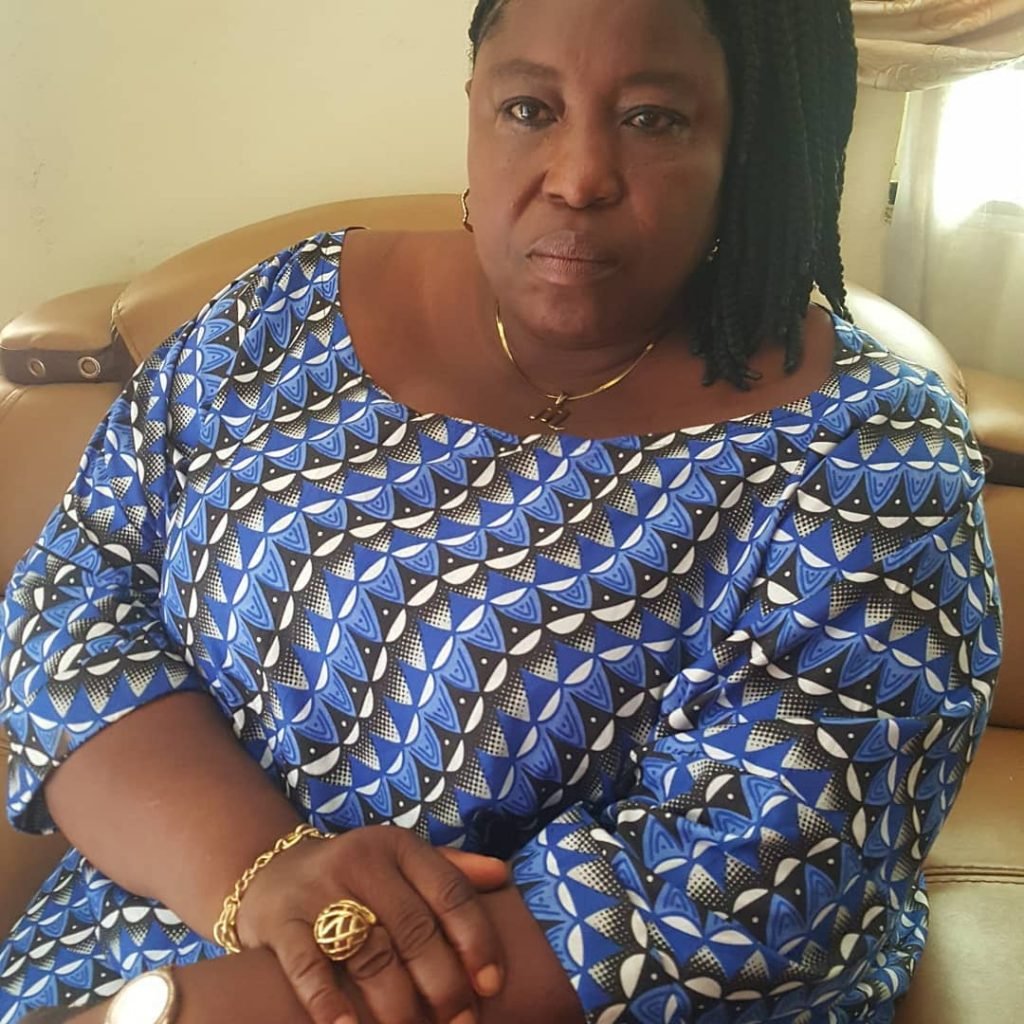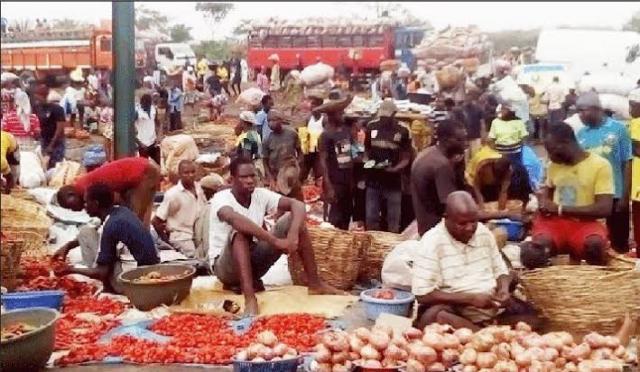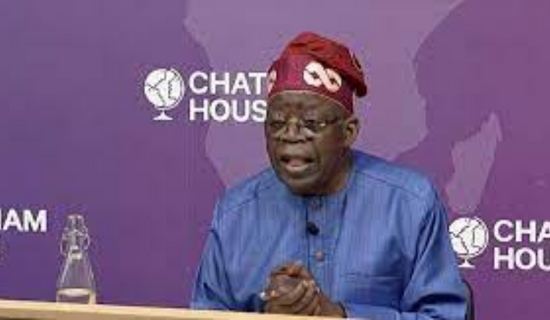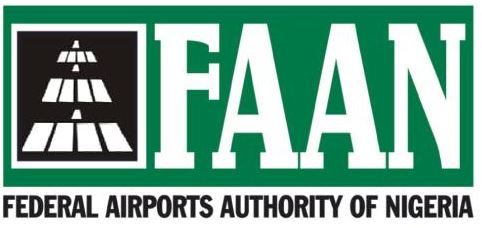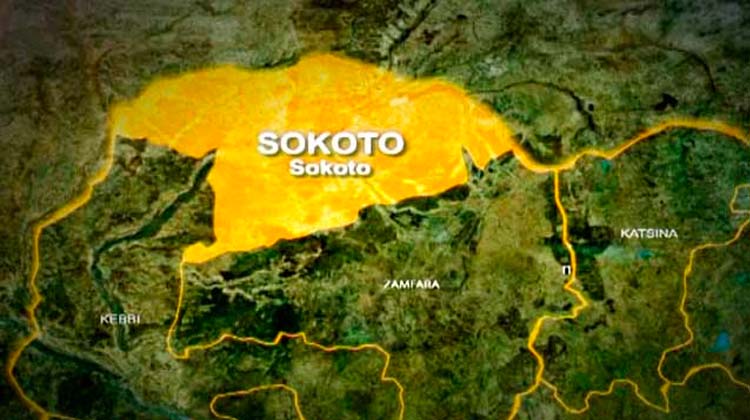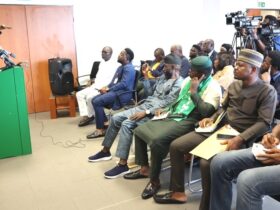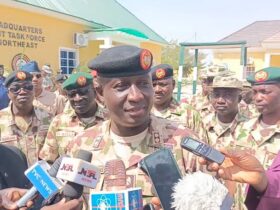Nigerians are grappling with continuously eroding purchasing power in the face of inflationary pressure that has maintained a worrisome upward trajectory. This is in total defiance of concerted efforts by the Central Bank of Nigeria (CBN) to save the nation’s economy from the devastating effects of untamed inflation.
According to the Commodity Price Index (CPI) report published last week by the National Bureau of Statistics (NBS), Nigeria’s inflation rate increased for the fourth consecutive month this year to 22.22 percent in April from the 22.04 percent recorded in March.
The CPI is used to measure inflation by tracking the changes over time in the prices paid by consumers for a basket of goods and services. The basket’s composition and weighting are usually based on surveys of household or family expenditure habits.
The April 2023 inflation rate showed an increase of 0.18 percentage points when compared to the March 2023 headline inflation rate. Similarly, on a year-on-year basis, the headline inflation rate was 5.40 percentage points higher compared to the rate recorded in April 2022, which was 16.82 per cent.
The CPI is used to measure inflation by tracking the changes over time in the prices paid by consumers for a basket of goods and services. The basket’s composition and weighting are usually based on surveys of household or family expenditure habits.
The April 2023 inflation rate showed an increase of 0.18 percentage points when compared to the March 2023 headline inflation rate. Similarly, on a year-on-year basis, the headline inflation rate was 5.40 percentage points higher compared to the rate recorded in April 2022, which was 16.82 per cent.
“The cumulative inflation between 2019 and 2022 was 55 percent, households’ purchasing power has slumped and the real minimum wage in 2022 after discounting for inflation is N19,355 while in dollar value is $26 after discounting for both inflation and exchange rate depreciation,” chief economist at World Bank Nigeria, Alex Sienaert said.
He said the minimum wage, which was $82 in 2019, had dropped to $26, adding that over the past decade, macroeconomic stability had steadily deteriorated, eroding growth potential and hindering poverty reduction goal.
Deputy-President of the Lagos Chamber of Commerce and Industry, Gabriel Idahosa, was reported at the weekend to have said the outgoing government had failed to tackle inflation.
He, however, expressed optimism that if the incoming government gets its economic policies right, the country may begin to see a slowdown in inflation rate by the third quarter of the year.
Idahosa said, “It will get better. It is a matter of time frame. If you are looking at between now and June when the present government will hand over, we are not likely to see any change. But after the government changes, by the third quarter we may begin to see some changes.”
Last week, Anambra State governor, Charles Soludu accused the Federal Government of plunging the nation into inflation through reckless borrowing and a lack of adherence to debt management rules.
Speaking during a panel session at the 2023 Induction Programme for incoming and returning governors in Abuja, Soludo suggested that the Debt Management Office (DMO) should function as a federation agency rather than a federal government agency, an arrangement, he said, will enable it effectively oversee the debt management of both states and the federal government.
“The Federal Government’s recklessness is evident in their disregard for the set benchmarks, such as the debt service to revenue ratio of 40 per cent”, Soludo said.
“These benchmarks are only enforced when it comes to states, while the Federal Government blatantly violates them. The Federal Government, without any regard for the law, goes ahead and accumulates trillions of debt, leading to soaring inflation. These are critical issues that need to be addressed in the future, and I sympathise with you, director general”.
But the Presidency has explained that the high inflation in the country is a world-wide problem, which no nation is immune to following the global economic downturn and the COVID-19 pandemic.
The President’s spokesman, Malam Garba Shehu, stated this while reacting to a media report tying the rise in inflation to the Muhammadu Buhari administration.
”Anybody, who promotes this kind of thinking is telling the whole world that they either don’t know what is happening all over the world or they are not paying attention to the facts”, Shehu had argued.
Beyond monetary policy
In response to the persistent inflationary pressures, the CBN has taken the approach of fighting inflation by raising interest rates. The bank has raised rates from 11.5% to 18%, resulting in a whopping 650 basis point increase. The unprecedented rise in rates is aimed at reducing the pace of inflation, regardless of the consequences.
But Nigeria’s inflation has remained stubbornly high, despite increases in benchmark interest rate, as well as, attempts to stifle consumer demand through reducing cash-in-circulation.
It is expected that the unrelenting spikes in inflation will heavily influence the central bank’s decision at the next monetary policy meeting, which is around the corner.
In a chat with our correspondent, an economist, Dr. Francis Anyanwu, noted that it is crucial for the CBN to reassess its approach and consider taking more decisive and comprehensive measures to address the alarming inflation rate.
Dr Anyanwu said, “Raising interest rates alone may not be sufficient to curb inflation, as evidenced by the recent data. While it is essential to tighten monetary policy to reduce liquidity in the economy and curb excessive consumer demand, the CBN needs to go beyond interest rate adjustments to achieve lasting results.
“One area the CBN should focus on is tackling the root causes of inflation and going hard with policies that bite and not just bark. This can be grouped into real-sector root causes and financial services root causes.”
Last month, Oyeyemi Kale, KPMG Nigeria’s chief economist and former Statistician-General of the federation, warned that policy measures aimed at controlling spending may not be the best strategy for moderating inflation.
He was reacting to recent policies (interest rate hike, and the naira redesign policy) by the CBN aimed at curbing the current inflationary trend in Nigeria.
According to Kale, following the CBN’s naira redesign policy, currency in circulation has dropped from N3.28trn in December 2022 to N1.38 trn in January and to an estimated N982.09b in February 2023, representing a 235 percent decline.
“It was expected that the scarcity of redesigned notes, which caused a cash crunch in the economy since January 2023, would stimulate a slowdown in demand-pull inflation, especially given the series of interest rate hikes from the central bank (500 basis points since May 2022). This has, however, not happened yet,” he said.
“This might indicate a drop in output below effective demand, despite the cash crunch, with some producers of goods and services whose activities are cash-based facing challenges purchasing inputs for production or replacing their stock and distributing them across the country.”

